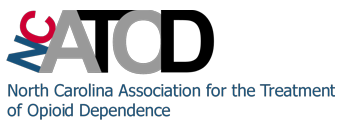What is heroin/opiate addiction?
Heroin/Opiate addiction is a chronic, relapsing disease that is characterized by compulsive drug seeking and drug use. Molecular and neurochemical changes in the brain also occur. Seeking and using drugs becomes the primary purpose in life of the addicted person. Physical dependence develops with higher doses of the drug so that withdrawal symptoms occur if use is reduced abruptly. Physical dependence and withdrawal symptoms are also accompanied by cravings that may last for weeks or months after physical withdrawal.
What are some treatments for heroin and other opiate addictions?
A variety of effective treatments are available for heroin and other opiate addictions. Treatment varies depending on the individual; but methadone, a synthetic opiate that blocks the effects of heroin and eliminates withdrawal symptoms, has a proven record of success for people addicted to heroin and other opiates. Properly prescribed, methadone is not intoxicating or sedating. The medication is taken orally and it suppresses narcotic withdrawal for 24 to 36 hours.
Most important, methadone relieves the cravings associated with opiate and heroin addiction. The effects of methadone last 4 to 6 times longer than heroin and other opiates so that people in treatment need to take it only once a day. Methadone is medically safe, even when taken continuously for 20 or more years. Combined with counseling and other supportive services, methadone enables patients to stop using heroin and other opiates and return to a more stable and productive life. Buprenorphine, another pharmaceutical approach and behavioral therapies are also used for treating these addictions.
Opioid treatment has been used effectively and safely to treat heroin and other opiate addictions for over 30 years.
Who is eligible for methadone treatment?
In order to be admitted to methadone treatment, U.S. Food and Drug Administration standards require:
- A minimum of one year of addiction to opiates as well as current evidence of opiate addiction. Special circumstances apply to opiate dependent pregnant women, who may be admitted without demonstration of the one-year minimum.
- Applicant must also be over 18 years of age.
- If the applicant is under 18, (s)he must have parental consent and demonstrate at least two prior treatment episodes in either drug free treatment or short-term tapering.
Methadone treatment is voluntary and available to persons of any sex, ethnicity, and physical or mental condition, including pregnant women and mentally ill substance abusers.
What are some long term effects of heroin and opiate usage?
- Addiction
- Infectious Diseases-HIV/AIDS, Hepatitis B and C
- Scarred or Collapsed Veins
- Liver or Kidney Disease
- Abscesses and Bacterial Infections
- Complications of Pregnancy
- Lung Complications - TB and Pneumonia
- Family Disruption
- Psychological and Social Problems
Effective treatment for narcotic addiction is available throughout the State of Georgia. Please seek help now and avoid these long-term effects.
How are methadone treatment programs monitored?
Methadone treatment is the most monitored and regulated medical treatment in the United States. Federal and state regulatory agencies monitor methadone treatment programs through on-site program reviews.
At the federal level, regulatory oversight is being moved in a multi-year initiative from the Food and Drug Administration to the Center for Substance Abuse Treatment, using an accreditation model. Programs also receive their license from the United States Drug Enforcement Administration.

